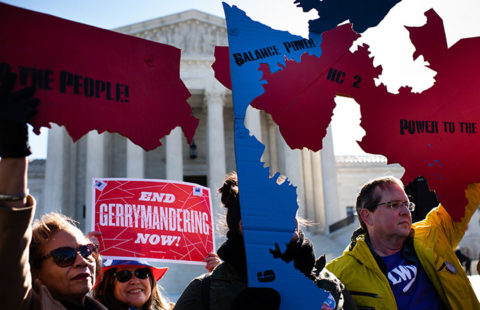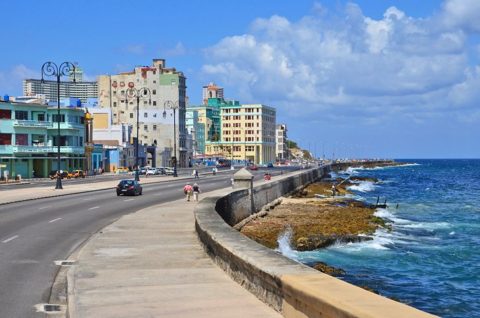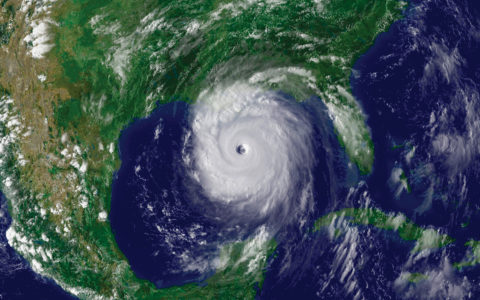Podcast: Play in new window | Download
Subscribe:

What we want our parents to have been and our presidents to be — the father/mother who knows best and takes care of everything.
Most of us who grew up in homes with a mother and father in residence remember our childhoods as times of absolute safety. If the slightest thing went awry, Mom or Dad would fix it immediately. In our adult lives, facing existential threats (whether real or imagined, still threats) on a daily basis, we often wax nostalgic about that Golden Age when Mom and Dad, all powerful, provided for our every want and vanquished every threat to our well-being.
Every once in a while, reality intruded into our cocoons and someone suffered an accident or a sudden illness or a crime, sometimes someone died, and we all reeled in shock at this thing that could not happen. But in time we either returned to our cheery confidence or gave ourselves over to permanent nostalgia for the old days, when everybody was safe.
We weren’t safe, of course. We were ignorant. We believed in Santa Claus, the Tooth Fairy and omnipotent parents. Meanwhile our parents were just as scared, insecure, uncertain and self-doubting as we are now. Thinking differently — believing in that Golden Age — warps our thinking about ourselves, for one thing makes us fault ourselves for not being as stalwart as we suppose they were.
But there’s more to it than that. Believing our parents were god-like and our childhoods were inviolate is childlike, perhaps, but it does scant harm, and that only to ourselves. But when you expand that mistaken belief into an entire worldview, the increase in harm is exponential. Continue reading →

 It is widely accepted now that there are two kinds of news in circulation in the world: relatively accurate news, and fake news. A number of cable channels and Internet sites have chosen sides, and put out either all real or all fake news. The “real” news outlets — The
It is widely accepted now that there are two kinds of news in circulation in the world: relatively accurate news, and fake news. A number of cable channels and Internet sites have chosen sides, and put out either all real or all fake news. The “real” news outlets — The 

 We don’t organize large rallies to protest hurricanes. No one advocates, and no government funds, attempts to eradicate hurricanes, despite their destructive and deadly nature. (Occasionally some idiot will propose dropping a nuclear bomb on one, but no one that dumb could ever get elected president. Oh, wait…) No one reviles hurricanes, or denies that they exist. No one blames the president for the hurricanes that occur during his term of office. At least not yet. No one campaigns on behalf of hurricanes, trying to persuade us to understand them better, except weather forecasters when one is approaching and they all run out to stand in the rain and the blowing debris to tell us not to do that.
We don’t organize large rallies to protest hurricanes. No one advocates, and no government funds, attempts to eradicate hurricanes, despite their destructive and deadly nature. (Occasionally some idiot will propose dropping a nuclear bomb on one, but no one that dumb could ever get elected president. Oh, wait…) No one reviles hurricanes, or denies that they exist. No one blames the president for the hurricanes that occur during his term of office. At least not yet. No one campaigns on behalf of hurricanes, trying to persuade us to understand them better, except weather forecasters when one is approaching and they all run out to stand in the rain and the blowing debris to tell us not to do that.
 A dismaying proportion of the news coming at us from the mainstream media firehose is based on polls. It’s dismaying to me because in my past lives in business and politics, I have been a consumer of the polls themselves, not just the news based on them, and thus have first hand knowledge of how good they are. Which is not very. And they are getting worse fast.
A dismaying proportion of the news coming at us from the mainstream media firehose is based on polls. It’s dismaying to me because in my past lives in business and politics, I have been a consumer of the polls themselves, not just the news based on them, and thus have first hand knowledge of how good they are. Which is not very. And they are getting worse fast. In all the babble over the “reforms” to Medicare now being debated in Congress, I have heard not one talking head refer to the reason the reforms are necessary: perhaps the single most contemptible piece of legislation ever disgorged by the Congress. It was part of the 2003 law establishing Medicare Part D, which for the first time would pay for medications. It was called the “noninterference provision,” and it
In all the babble over the “reforms” to Medicare now being debated in Congress, I have heard not one talking head refer to the reason the reforms are necessary: perhaps the single most contemptible piece of legislation ever disgorged by the Congress. It was part of the 2003 law establishing Medicare Part D, which for the first time would pay for medications. It was called the “noninterference provision,” and it 
